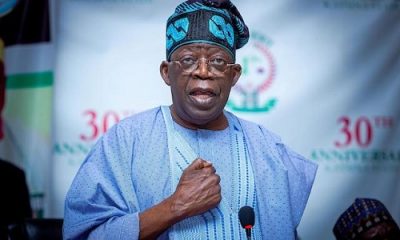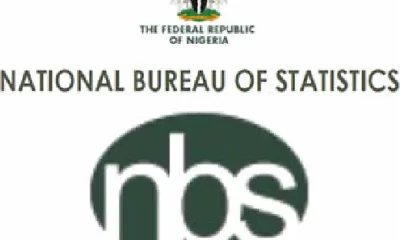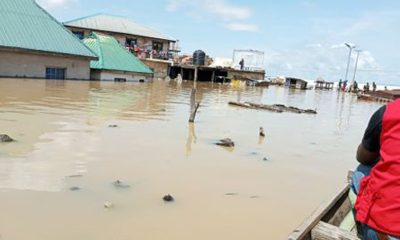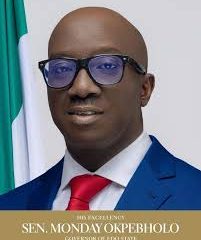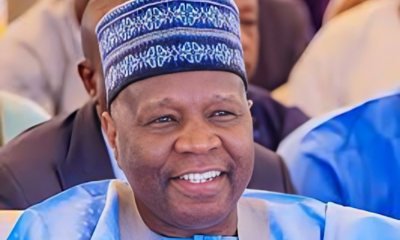COVER
Nigerian Households Spend $14bn Annually to Fuel Generators
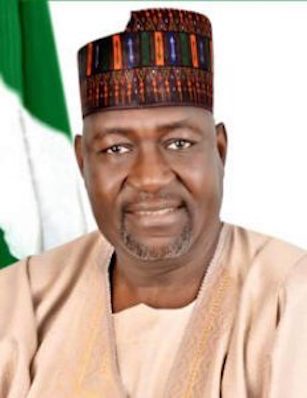
Over 40 per cent of households in Nigeria own and use generators to meet their electricity requirements, figures contained in a power sector report jointly put together by a research firm and a financial institution, showed.
It also stated that the affected households spent about $14bn annually to fuel their generators, as the power supply from the national grid continued to falter.
The June 2022 report by Stears and Sterling, titled, “Nigeria’s State of Power: Electrifying the Nation’s Economy,” obtained by our correspondent on Friday in Abuja, stated that the cost expended on diesel and petrol for electricity generation by Nigerians was having severe economic impact on households and businesses.
It read in part, “Nigerian households, on average, have electricity in their homes for 15 to 18 hours each day. Of that, 44 per cent (or 6.8 hours) is self-supplied by generators. And this differs by geography. In a state like Taraba, only 19 per cent of households report having electricity.
“Over 40 per cent of Nigerian households own generators, and bear the associated costs. First, the cost of purchasing generators – an estimated $500m between 2015 and 2019, higher than the proposed capital expenditure in Nigeria’s 2022 budget.
“There is also the cost of powering these generators. Sources and estimates vary widely, but the African Development Bank estimated that Nigerians spend $14bn fuelling petrol or diesel powered generators.”
“While PMS (Premium Motor Spirit) or petrol prices have been kept artificially low for the consumers through subsidies, variations in AGO (Automotive Gas Oil) or diesel prices can have a severe impact on households and businesses as Nigerians are currently experiencing,” the report added.
The report stated though the National Bureau of Statistics diesel price watch for February 2022 showed a less than 10 per cent rise in the price of fuel from the beginning of the year, diesel was widely sold at prices 200 to 300 per cent up from the end of last year.
This, it said, had made it incredibly difficult for households or businesses to plan and manage themselves.
The analysts noted in their report that while petrol prices appeared more stable, prices were kept artificially low by government subsidies which were generally acknowledged to be unsustainable even in the near to medium term.
“These prices make the small petrol generators more attractive to households and MSMEs (micro, small and medium enterprises), they stated.
“However, perennial issues like product scarcity, make using these generators unreliable as well as expensive,” they added.
Power experts at Stears and Sterling observed that Nigeria had one of the lowest electrification rates in the world.
They stated that in the most populous country in Africa, 43 per cent of the population had no access to grid electricity.
“This means that 85 million Nigerians are not connected to – and cannot receive electricity from – the Nigerian transmission grid,” they stated in the report.
The report added, “While Nigeria’s electrification rate is above the Sub-Saharan Africa regional average of 47 per cent, it lags significantly behind its peers across the continent and the global average.
“Nigerians who do have access to power also have to contend with its poor quality, typically exhibited by epileptic supply.
“Households connected to the grid only receive an average of seven hours of electricity per day, forcing them to turn to alternative energy sources – most prevalently diesel generators, an expensive and dirty source of energy.”
The report stressed that the impact of not having reliable energy could not be overstated, adding that “economic losses associated with Nigeria’s energy crisis are estimated at N10tn ($26bn) – the country’s 2022 proposed budgetary revenue and roughly three times what it actually earned in 2020.”
Proffering measures to help address the country’s electricity problems, an energy expert, Prof. Yemi Oke, called for the appointment of individuals with expertise in handling power issues.
“Put those who are radically-proactive to deploy knowledge-based strategies to re-reform, because we need to go through another round of power sector reform, and the NERC (Nigerian Electricity Regulatory Commission), which I honestly think is unconstitutional as presently constituted.
“I’ve written and severally said this years ago. We can’t be talking of a federated grid system or power sector in the 21st century! By virtue of the constitution, every state should, by now, have their equivalent of NERC.
“For example, Ogun State Electricity Regulatory Commission; Lagos; Kano, etc, to license power generation, transmission, and distribution. That’s what our constitution says, but what operates is the reverse.
“You can imagine if the experiential efforts of Bola Tinubu with ENRON had been allowed to thrive and not undermined by ‘federal might’, same way Jakande’s metroline was thwarted! It is well with Nigeria,” he added.
COVER
Seven Months After, Reps Pass Harmonized Tax Reform Bills

By Eze Okechukwu and Ubong Ukpong,Abuja
House of Representatives on Wednesday passed the tax reform bills transmitted to the National Assembly by President Bola Tinubu in October 2024.The bills were passed at a session presided over by the Deputy Speaker, Benjamin Kalu.
The development followed the adoption of the harmonised versions of the reform bills by both the House and the Senate. At plenary on Wednesday, the House of Representatives considered the report of the conference committee, which harmonised the bills. The Chairman of the House Committee on Finance, Abiodun Faleke (APC, Lagos), who headed the House team to the conference committee, presented the conference report to the House for consideration.According to him, the Conference Committee met and agreed on all areas of difference in the version passed by both chambers of the National Assembly. He stated that there were 45 areas of difference in the Nigeria Tax Administration Bill, 12 areas of difference in the Nigeria Revenue Service Bill, 9 areas of difference in the Joint Revenue Board Bill and 46 areas of difference in the Nigeria Tax Bill, adding that all grey areas were resolved ahead of the passage. While the conference committee agreed to retain the Senate version in some of the clauses, they also retained the House version in some others, making amendments in a few others. The conference committee agreed to the imposition of a 4 per cent development levy on the assessable profit of all companies chargeable to tax under Chapters 2 and 3, except small companies and non-resident companies. They also agreed that the levy shall be collected by the Nigeria Revenue Service and paid into a special account created for the same purpose.In the sharing formula, the committee agreed that 50 per cent of the tax would go to the Tertiary Education Trust Fund, 15 per cent to the Education Loan Fund (up from 3 per cent agreed by the House), and 8 per cent to the Nigeria Information Technology Development Fund.
Similarly, the National Agency for Science and Engineering Infrastructure is to get 8 per cent (down from 10 per cent earlier agreed by both chambers), the National Board for Technology Incubation is to get 4 per cent from the fund, defence and security infrastructure is to get 10 per cent while cyber security fund will get 5 per cent.
Meanwhile, the Social Security Fund, Nigeria Police Trust Fund, and National Sports Development Fund were excluded from the list of beneficiaries passed by the House of Representatives.
The committee also adopted a new clause 158, which imposes a 5 per cent surcharge on chargeable fossil fuel products provided or produced in Nigeria and shall be collected at the time a chargeable transaction occurs.
The controversial Value Added Tax sharing formula was not part of the areas of disagreement between the two legislative chambers.
In his remarks, Kalu said the parliament has played its part in ensuring that the country moves forward, even as he urged the executive arm of government to do its part.
In his contribution, a member of the House representing Gwoza/Damboa/Chibok Federal Constituency, Borno State, Ahmed Jaha warned those who will clean up the bill not to tamper with any of the clauses passed, saying “Where the T is not crossed, don’t cross it, where the I is not dotted, don’t do it. We have the original copies of the bills as passed before and after harmonisation.
“We have had cases in the past where those in charge of cleaning up the bills tamper with it and at the end of the day, the President will withhold assent. That must not happen.”
That said, the All Progressives Congress lawmaker singled out Speaker Tajudeen Abbas and Deputy Speaker, Benjamin Kalu for praise, saying, “I want to thank your leadership for the role you played in making these bills a success. I also want to thank the Chairman of the Committee, Abiodun Faleke. He showed that he is truly a good elder. He provided a lot of training for some of us, and I want to say that this is the way to go.”
In a related development, the Senate has approved the Rivers State 2025 budget for a second reading.
The budget, which totals ₦1,480,662,592,442 trillion, was presented by the Senate Leader, Senator Michael Opeyemi Bamidele, on Wednesday.
Bamidele explained that the Senate had assumed legislative powers over Rivers State following the declaration of a State of Emergency in the state.
Supporting the motion, Senator Solomon Adeola Olamilekan emphasised the urgency of passing the budget to ensure that the people of Rivers State feel the impact of governance.
He said, “Mr. President, I am not exactly sure under what title this document is categorised, but from what I can see, it pertains to a budget under the state of emergency. I hereby support its passage for second reading so that the people of Rivers can feel the presence of government.”
With no opposition to the motion, the Senate President, Godswill Akpabio, conducted a voice vote and referred the budget to the Ad-hoc Committee on Overseeing the Rivers State of Emergency for further legislative action.
Senate announced that the Sole Administrator of Rivers State, Vice Admiral Ibok-Ete Ekwe Ibas, along with other key state officials, would appear before a Joint National Assembly Ad-hoc Committee to defend the state’s 2025 budget. NASS holds commemorate 25 years of democracy, holds joint session,
Also,President of the Senate, Senator Godswill Akpabio, has announced that a joint session of the National Assembly will be held on June 12 to commemorate Democracy Day.
He made the announcement after the upper chamber reconvened for plenary on Wednesday.
Akpabio revealed that the Senate leader, Senator Opeyemi Bamidele, the Senate minority leader, Senator Abba Moro as well as the Chairman senate services, Senator Sunday Karimi will meet with their counterparts in the House of Representatives to finalize the programme of activities and coordinate arrangements for the special session.
COVER
Dangote Beats MTN, DSTV, AZAM to Emerge as Most Admired African Brand

By David Torough, Abuja
It was another historic milestone for pan-African investor Aliko Dangote and the Dangote Industries Limited over the weekend, as they garnered three prestigious accolades at the 15th annual Brand Africa 100 awards, held at the iconic Africa Hall in Addis Ababa, Ethiopia—the birthplace of the Organisation of African Unity (OAU), now the African Union (AU).
Dangote Industries Limited was named Most Admired African Brand, following an independent, consumer-led survey conducted across more than 30 African countries. The company was also inducted into the Brand Africa Hall of Fame, becoming the first African firm to receive this distinction. The induction recognises Dangote’s transformative impact on African consumers and its influential role in shaping a positive narrative for the continent.President/Chief Executive, Dangote Industries Limited, Aliko Dangote was honoured with a Lifetime Achievement Award in recognition of his leadership in driving impactful industrialisation, establishing a world-class African brand and reshaping the continent’s economic future through a benchmark, homegrown enterprise.Joining Dangote Industries in the inaugural Hall of Fame were MTN, M-Pesa, Ethiopian Airlines, and South Africa, for consistently ranking among Africa’s most admired brands over the past 5 to 15 years and for building sustainable, globally respected brands.Reacting to the awards, Group Chief Branding & Communications Officer, Dangote Industries Limited, Anthony Chiejina, said the honours reflect the unwavering commitment, excellence, and innovation that define the group’s journey. He added that they are a testament to the dedication of the company’s outstanding team, partners, and stakeholders, who continue to believe in the mission to drive sustainable development and economic growth across the continent.”We also extend our heartfelt appreciation for the Lifetime Achievement Award presented to our Founder and President, Aliko Dangote for building a purposeful world-class industrial brand that has exceptionally transformed African lives and the African narrative. This accolade celebrates not only his visionary leadership but also his tireless efforts in transforming industries, creating opportunities, and championing African enterprise on the global stage. His legacy is an inspiration to generations of entrepreneurs and leaders across Africa,” he said.Noting that the recognition would further inspire the company to push boundaries, empower communities, and deliver meaningful value across Africa and beyond, Chiejina reaffirmed Dangote Industries’ commitment to excellence, integrity, and transformative growth.In his keynote address, United Nations Under-Secretary-General and Executive Secretary of the Economic Commission for Africa, Mr Claver Gatete, praised Aliko Dangote, the Hall of Fame inductees, and the Brand Africa laureates for advancing the African agenda.He highlighted the alignment between Brand Africa and the ECA’s mission to promote inclusive industrialisation, regional integration, and private sector-led growth. He also called for increased investment in youth-led innovation, regional value chains and the establishment of a Pan-African Creative Innovation Fund to identify, finance and globalise Africa’s most promising brands.”I wish to particularly acknowledge MTN, Dangote Group, mPesa and Ethiopian Airlines for consistently maintaining their distinguished positions among the “Most Admired African Brands” category and continuing to set benchmarks in brand leadership, innovation and continental impact,” he said.COVER
Land Revocation: FCTA Seals PDP Secretariat, FIRS, Access Bank, Others
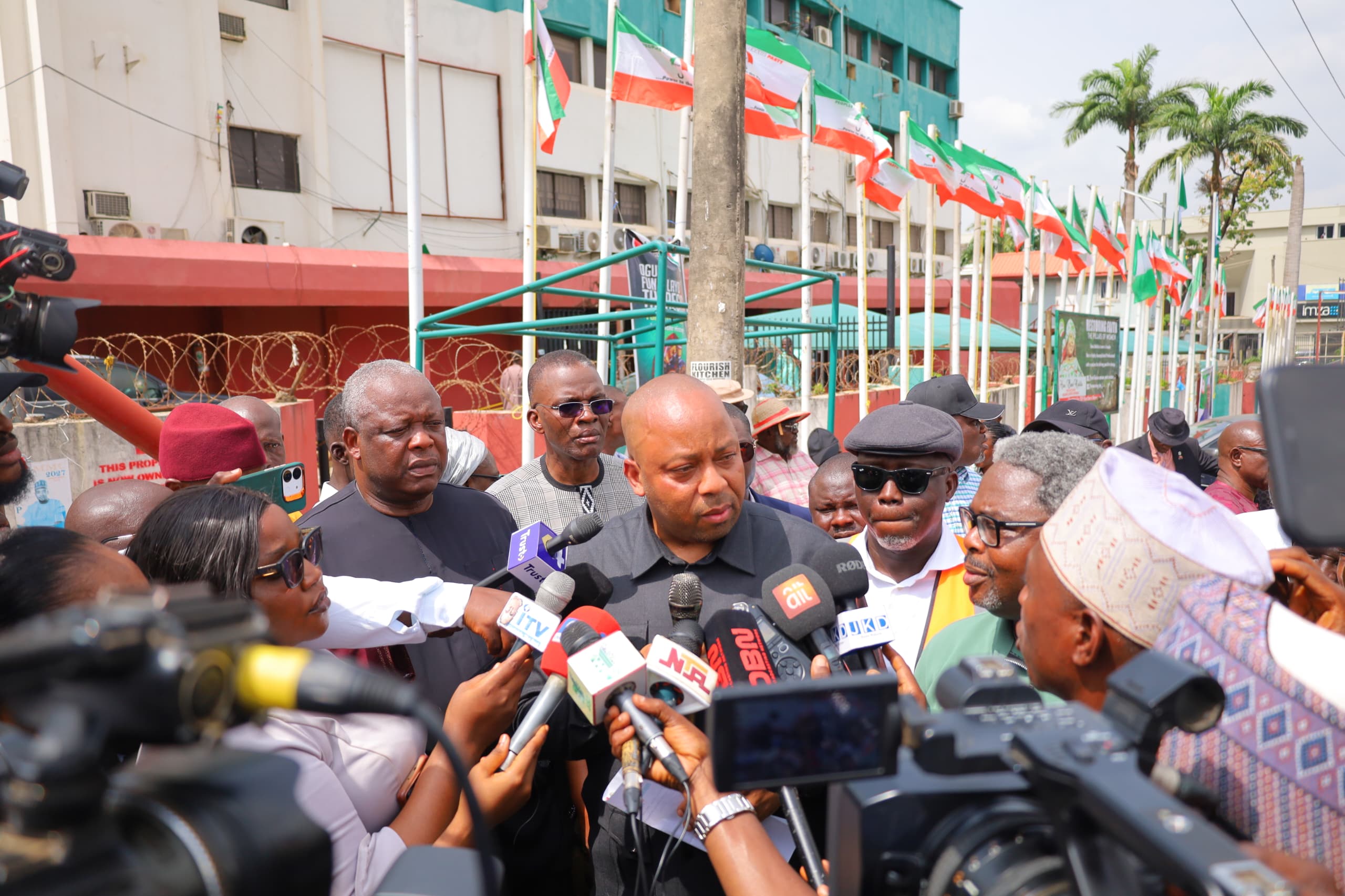
By Johnson Eyiangho and Laide Akinboade Anima, Abuja
A team from the Federal Capital Territory Administration (FCTA) on Monday sealed the Peoples Democratic Party (PDP) national secretariat, Wuse Zone 5, Abuja.The sealing of the PDP secretariat came barely 24 hours to the much anticipated meeting of the party’s National Executive Committee (NEC) scheduled for Tuesday.
The national secretariat also serves as the venue to the PDP NEC meeting. A joint taskforce comprising officials from the FCTA, Police, DSS, Army, NDLEA and NSCDC stormed the Secretariat at about 2.04pm and sealed the office shortly after a crucial meeting of the PDP National Working Committee (NWC).However, after a briefing meeting between the FCTA and PDP officials, all cars parked in the premises of the Secretariat were allowed to move out, while the PDP’s officials rushed to Bauchi State Governor’s Lodge for the Caucus meeting of the party.The sealing of the Secretariat is widely perceived as a strategic escalation in Wike’s ongoing feud with leadership of the party, particularly those pushing for the removal of his lackey, Senator Samuel Nnaemeka Anyanwu, as National Secretary of the party.Meanwhile, the National Working Committee (NWC) of the PDP has vowed that the National Executive Committee (NEC) meeting slated for Tuesday May 27, 2025 will be held as scheduled.A party official who did not want to be named described the sealing of the Secretariat as a temporary setback, vowing that all party activities leading to NEC and beyond will continue.The National Caucus Meeting, Board of Trustees and Governors meetings are part of activities ahead of the NEC meeting.The FCT Minister had revoked over 4,700 properties due to long-standing non-payment of ground rent to the Federal Capital Territory Administration (FCTA).Also affected by the Monday exercise are Access Bank, the Federal Inland Revenue Service (FIRS), Ibro Hotel and Total Energy in Abuja.The enforcement, which began in the Wuse District, was led by FCT Minister’s Senior Special Assistant on Public Communications and Social Media, Lere Olayinka, Director of Land Administration, Chijioke Nwankwoeze and Director Department of Development Control, Mukhtar Galadima.Speaking during the sealing of Plot 534, Cadastral Zone A02, Wuse Zone 1, belonging to Total PLC, Galadima said, “Today is about walking the talk. We announced this earlier, and we are here to implement what we said to take possession of all revoked properties, starting with this plot.”He noted that the Total PLC property had accumulated over 10 years of unpaid ground rent, leading to its revocation in March 2025.Also sealed was the Access Bank branch located on Plot 2456, Wuse 1, Cadastral Zone A02. The property, however, belongs to Rana Taher Furniture Nigeria Limited and was revoked due to 34 years of unpaid ground rent.Galadima said the enforcement would proceed to other parts of the city, including the Central Area, after the Wuse district.Tinubu Intervenes, Gives 14-days GracePresident Bola Tinubu has intervened on the ongoing enforcement of possession of 4,794 properties revoked for non-payment of ground rent from 10 to 43 years and has given them 14 days ultimatum to pay up.This was revealed at a briefing by the Director of Land Administration, Chijioke Nwankwoeze, in Abuja.He said the defaulters have been given 14 days to pay up all outstanding and the penalty fees.The Director of Land noted that even though properties owned by government institutions, corporate organisations and individuals were affected, the Administration is committed to carrying out its functions without fear or favour.He said, “However, the President, His Excellency Bola Ahmed Tinubu, GCFR, has intervened. Therefore, by Mr. President’s intervention, holders of the affected properties now have 14 days (TWO WEEKS) to settle the outstanding Ground Rents, with associated penalties.”For properties in the Central Area, the sum of N5 million will be paid by the defaulters as penalty, in addition to the Ground Rent owed.”Those in Maitama, Asokoro, Wuse II, and Guzape Districts will pay the sum of N3 million as penalty, in addition to the Ground Rent owed.”Defaulters in Wuse I, Garki I and Garki II will pay N2 million as penalty in addition to the Ground Rent owed”.He added, “Also, all those who purchased properties from other people, but are yet to register their interests by obtaining the mandatory Minister’s Consent and registering their Deeds of Assignment now have 14 days (TWO WEEKS) to do so at the FCT Department of Land Administration.”Furthermore, the Minister of the Federal Capital Territory (FCT), Barrister Nyesom Ezenwo Wike, CON, has granted a 14 days (TWO WEEKS) grace period to all property holders in the FCT to pay up their Right of Occupancy (R-of-O)/Certificate of Occupancy (C-of-O) bills, or risk revocation of those titles”.The FCT Minister therefore urged property owners in the FCT to ensure that they pay all necessary bills and charges on their properties as at and when due, so as to enable the government to continue to carry out necessary developmental projects for the benefit of the people.
